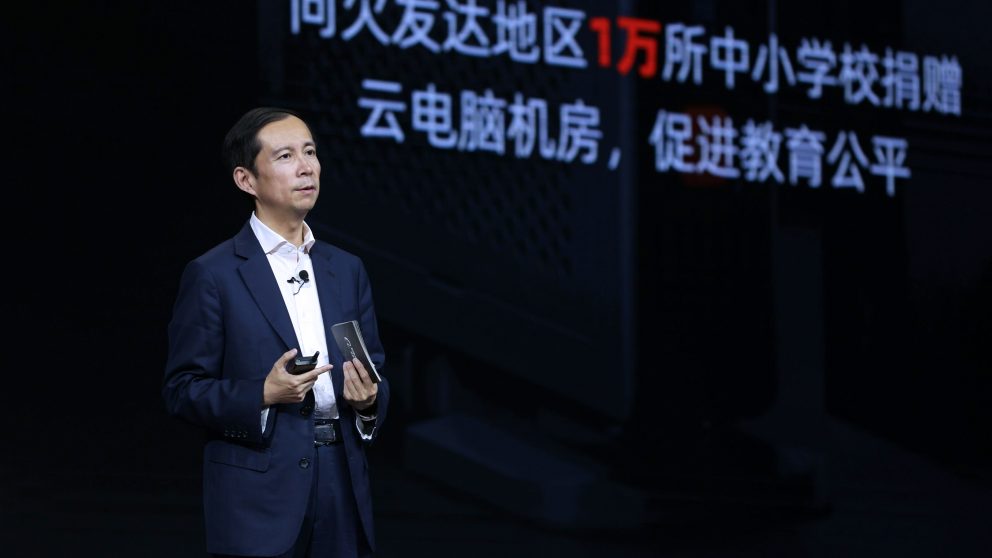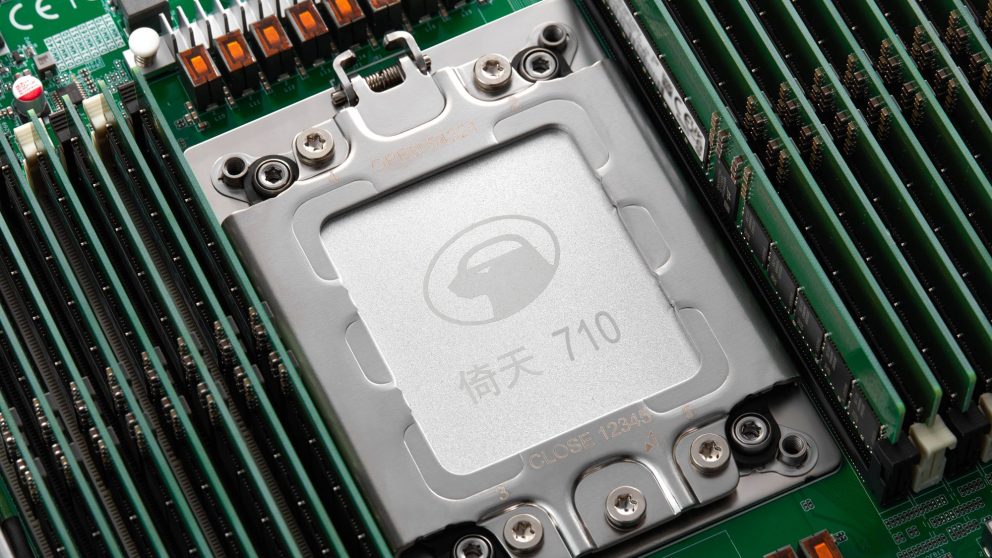


Alibaba's Daniel Zhang unveils initiatives to cultivate a collaborative, inclusive tech ecosystem. Photo credit: Alibaba Group
Advances in technology are creating an opportunity to go beyond solving the problems of businesses to creating value for society, said Alibaba Group Chairman and CEO Daniel Zhang on Tuesday.
The Hangzhou-based group has been steadily applying technology to tackle society’s problems, from improving education in underdeveloped regions to supporting the world’s largest sporting event, the Olympic Games, during the coronavirus pandemic.
“As we explore deeper the connection between different industries and technology, we saw that – rather just tackling commercial challenges – we have to turn our focus towards shared social problems,” Zhang said during his keynote speech at the company’s annual Apsara technology conference.
Cultivating an open, collaborative ecosystem for developing technologies is of the utmost importance, Zhang stressed.
Chinese participants have historically been seen as beneficiaries of the open-source community. From today onwards, we want to become contributors in this global community
“Chinese participants have historically been seen as beneficiaries of the open-source community. From today onwards, we want to become contributors in this global community,” he added.
To this end, Alibaba’s Chairman unveiled an initiative to support schools’ technology infrastructure in underdeveloped regions, pledging to donate cloud servers to 10,000 schools across China.
“We want more young people to become future-shapers and contributors in the digital world,” he said. In the same spirit – to encourage young talent around the globe – Alibaba has been hosting mathematics competitions and fellowships to recognize budding scientists.
Zhang said Alibaba would increase the reward pool for both programs next year, raising the top prize for the math event to US$50,000 and the award for scientific fellows to RMB30 million (US$4.7 million) in total.
Last month, Alibaba also launched a project to foster tech talent in developing areas. The program aims to train more than 200,000 technical experts across China, making digital technology more inclusive and accessible in the process.
In a separate announcement, Alibaba Cloud said it would make the source code for Alibaba’s XuanTie 910 chip freely available to developers around the world alongside code for XuanTie-related software and development tools. The XuanTie core series is based on RISC-V architecture.



Covid as a Catalyst
The social impact of technology became clear during the coronavirus pandemic as organizations worldwide sought to stem the spread of the viral pathogen with digital tools and platforms.
Alibaba’s workplace collaboration platform DingTalk expanded its servers and tools to support remote-working arrangements and online courses, while Alibaba Cloud created an artificial intelligence-powered platform for medical professionals to share their experiences on the frontlines of fighting the disease with their global peers. At DAMO Academy, Alibaba’s research and innovation arm, scientists developed an epidemic-prediction tool to forecast the scale and trajectory of outbreaks as well as AI technologies to help doctors quickly diagnose Covid-19, the disease caused by the coronavirus.
While the pandemic has now waned in China, Alibaba continues to explore ways to apply technology for the benefit of all.
In May, DAMO Academy launched a project with the UC Berkeley Library and Sichuan University to leverage AI to preserve classic texts and other items of cultural significance. Scanned images from ancient books are converted into digital text files for online viewing, while optical character recognition technology can decipher historical Chinese characters that have fallen out of use. Last month, DAMO’s engineers leaned on AI tools to animate historical portraits, allowing them to blink, smile and speak.
Technology can be a bridge between the past and present but also a gateway for new sensations and experiences, Zhang noted, pointing to cloud-enabled broadcasting technology used at the Olympic Games Tokyo 2020 to ensure that the biggest show on earth could continue despite the pandemic.
Alibaba Cloud partnered with the Olympic Broadcasting Services to move the backend of broadcasting to the cloud to reduce the equipment load for media organizations covering the Games. Broadcasters were also able to make use of AI-powered near real-time insights for the 100-meters sprint, the shortest sprinting competition at the Games.
“We want to continue to discover the unknown and stretch the limits of our imagination to make our existing technology better, as well as to develop new technologies and help shape a new digital future,” said Zhang to the conference audience in Hangzhou.
To receive the latest news directly in your inbox, sign up for the weekly Alizila newsletter





